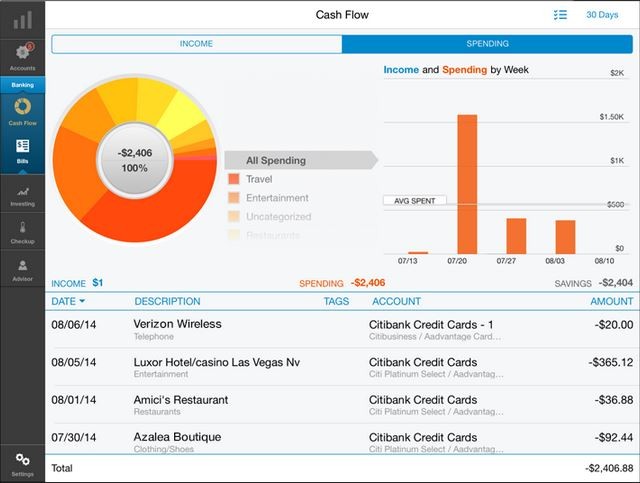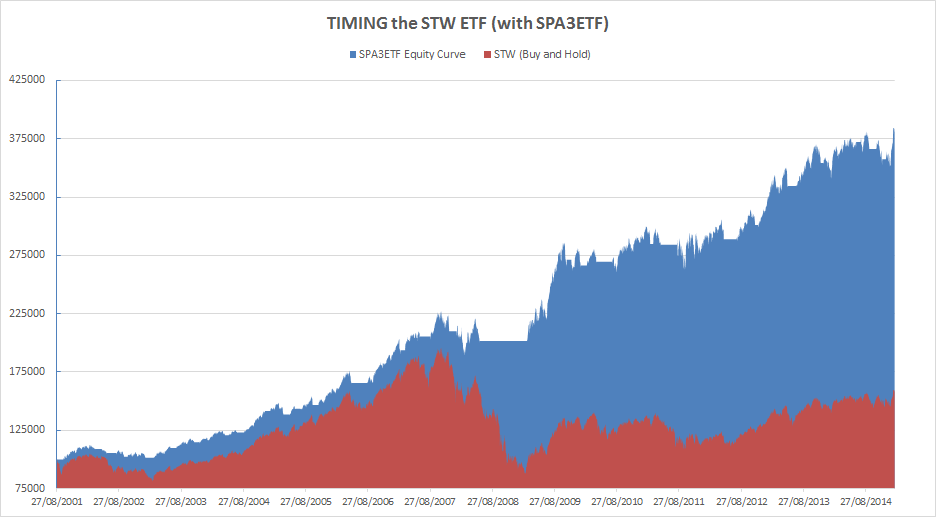ETFs Are Only As Good As the Underlying Market And If Your Timing Is Bad You ll Pay Focus on
Post on: 8 Май, 2015 No Comment

By Brendan Conway
Theres something of a buzz Friday over the idea that the plumbing inside the exchange-traded fund market is breaking down. Much of it is being prompted by this Financial Times article on a limit State Street (STT ) imposed on what dealer firms can get in exchange for their muni-bond ETF shares.
ETFs arent breaking down. But they are providing a reminder that these funds sometimes deliver worse results than the underlying markets.
It tends to happen when an investor chooses a moment of market panic to sell an ETF thats built atop relatively illiquid assets. Say, emerging market bonds or high-yield munis right now. Some markets trade poorly; easy-to-own ETFs cant fix that. They may fall even harder.
If you didnt know this heading into Thursdays selloff, nows a good time to learn. Because there could easily be a repeat.
On Thursday, as the FT story explains, State Street stopped allowing dealers authorized participants, in the market lingo from redeeming their muni-bond ETF shares for cash. The firm instead required them to take hold of the muni bonds directly.
Under normal circumstances, State Street and other big ETF companies will provide the accommodation of allowing shares to be redeemed in cash in exchange for a fee, James Ross. senior managing director at State Streets SPDR ETF unit, told Barrons in a phone interview this afternoon. Its normally more efficient for a huge firm like State Street to buy and sell the bonds than a smaller market-making firm.
The arrangement generally needs to be hammered out 24 hours in advance, Ross explained. But when markets turn volatile, it gets harder for State Street to assess how much it needs to charge to assume the risk of giving the dealers cash instead of the underlying bonds, which (obviously) are less of a sure thing than cash.
In those relatively rare cases, State Street might shut off cash redemptions temporarily. Which is what happened Thursday.
Its still the case on Friday. Its probably still a no at this point, Ross said. Were still concerned about volatility in the marketplace.
State Street’s muni ETFs include SPDR Barclays California Municipal Bond (CXA ), SPDR Nuveen S&P High Yield Municipal Bond (HYMB ), SPDR Barclays Capital Municipal Bond (TFI ), and SPDR Barclays Short Term Municipal Bond (SHM ).
Its sort of like a game of whack-a-mole. When a relatively illiquid market gets stressed, the risk of owning the bonds is bound to pop up here, or there, in the form of a cost to somebody.
As these behind-the-scenes changes were going on, its important to remember that Joe Investor can still get cash for his ETF shares. But who gives him the cash? It comes from the dealer. Is the dealer going to assume the risk of owning plunging bonds without being compensated for the service?
No. The cost ultimately makes its way back to the seller in the stressed market, in the form of a wide bid-ask spread, and/or a steep discount in your fund shares versus the underlying assets. The less liquid the market, the bigger the cost. Its a different set of circumstances than what you see in, say, SPDR S&P 500 ETF (SPY ), tracking one of the deepest markets in the entire world.
Lets look at how it has played out in the $217 million SPDR Nuveen S&P High Yield Muni Bond ETF, which has an attractive 4.6% yield. As of yesterday, the funds year-to-date trailing net-asset-value total return was a 2.83% loss, according to Morningstar .
But thats not what yesterdays sellers got. High-yielding asset prices are getting whacked lately, for fear the Federal Reserve will dial back the easy money. This ETFs market price return for the same period was a 6.87% loss, a difference of more than 400 basis points .

Thats not even the steepest discount in the last two years. This Morningstar chart shows a discount of 5.35% in June 2011, another period of unusual worry in the muni market:
The upshot is that the usually easy-to-trade ETF is going to reflect the stress in the market it is supposed to track. It may even amplify that stress, if the assets are especially illiquid. That appears to be what happened to the SPDR muni fund.
In a conventional mutual fund, sellers get net-asset value even in an ugly market. But somebody still has to pay the cost of offloading unwanted assets. Those funds solution is to share the costs equally among all shareholders. The ETF, by contrast, only penalizes the seller.
Ross, for his part, explains why State Street had to shut off cash redemptions: It cant let shareholders who continue to own the ETF bear the costs.
The existing shareholders in the fund shouldnt be harmed by creations and redemptions, he explained. The first thing we think of is, whats in the best interests of the shareholders? The cash redemption piece of this is just an accommodation that [the industry has] built up over the years.
The story points to a key tradeoff of ETFs: Yes, they let you into markets you couldnt otherwise access. But they cant cure the weak trading of those markets, even when the ETF trading itself is humming. The fund may even end up amplifying the woes for investors who sell at the wrong time.
Birinyi to Bloomberg: Not Adding to My Apple Position; Whipping Boy of Wall Street Right Now Next
Funds Roundup: Dont Be a Lemming; Dont Buy This Fund; Do Watch These Tiny Countries














